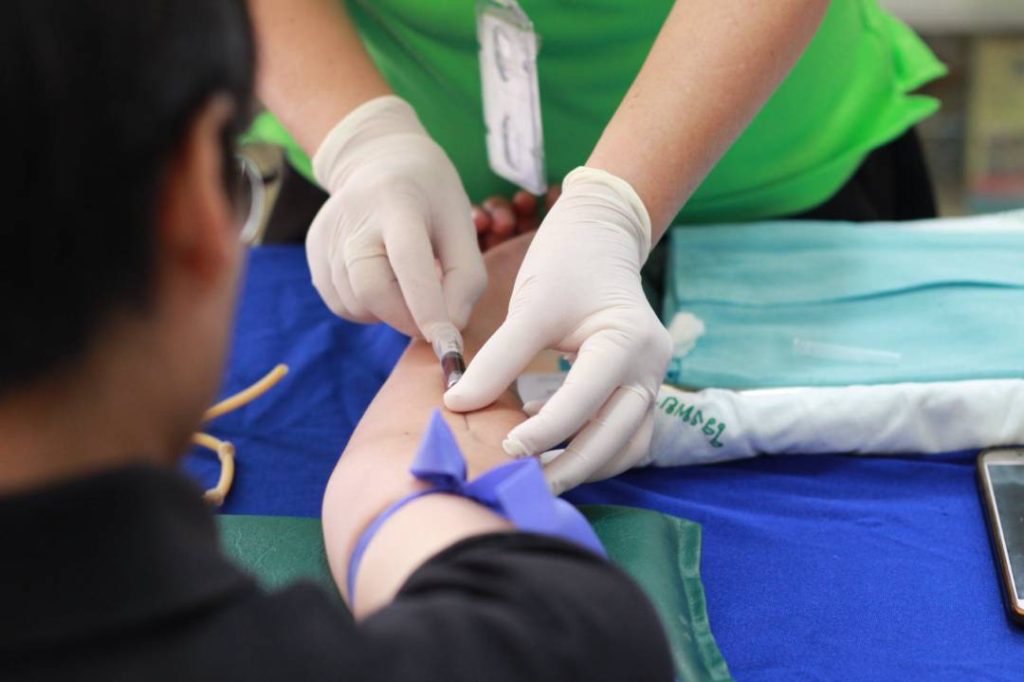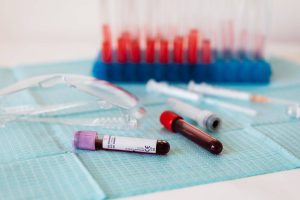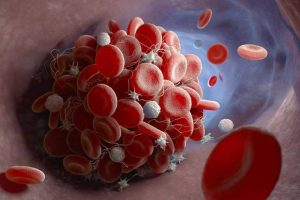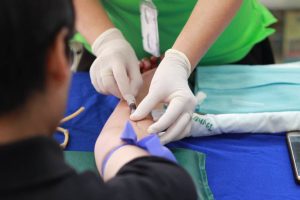Blood donation has become an urgent need globally, as it is essential in the treatment of some diseases and its effective role in urgent surgeries, healthy blood can give people with medical conditions a chance to live longer, in addition to its important role in complex surgeries.
The availability of healthy blood helps in saving the wounded who need to perform emergency operations of all kinds resulting from (natural disasters – accidents – armed conflicts).
For this reason, the whole world celebrates World Blood Donor Day on the fourteenth of June of each year, and the world began celebrating this day for the first time during 2004 in order to raise awareness of the importance of blood donation and the world’s need for healthy blood available, in addition to thanking blood donors and their saving lives.
You may want to donate blood, but you still have many questions regarding the donation process, and its impact on your physical health, and for that we have consulted some specialists and asked them about the benefits of blood donation on the health of the donor person, and we also inquired about the donation process itself and how to do it.

Benefits of blood donation on the health of the donor person:
- By donating a person can find out about any potential health problems they may have in the future.
- Donation helps rid the body of harmful iron stores in the blood.
- can reduce a person’s risk of having a heart attack.
- It can reduce a person’s risk of developing cancers.
- Donation helps keep your liver healthy and healthy.
- The donation process will make the donor feel good and happy that they helped someone else.
How is blood donation done?
On the day you go to donate blood, you must drink plenty of fluids in preparation for donation, the donation process will not take more than 8-10 minutes maximum, during which you will be asked to sit or relax on the chair, and the process in turn is divided into 3 main steps:
>Step 1: Attendance and blood test
First, you will be asked to show your personal identity or any other similar document, and the competent person will inform you of some necessary information about blood donation, and the nurse will ask you some questions regarding your patient history and the countries you have recently traveled to, and you must also inform the nurse if you are taking any of the medications, whether prescribed by a specialist doctor or even medicines available at home that do not require prescriptions.
During this, the nurse will take a blood sample from you to test whether you are healthy to donate blood during this day, and also to detect if there are any underlying diseases that may prevent you from donating blood.
The importance of this step lies in the possibility of transmitting the blood donor to some diseases to the recipient, and perhaps the most important of these diseases are AIDS and hepatitis B or C.
This test will also help you detect if you have any underlying diseases.
Step Two: Blood Donation
There are many types of blood donation, the most common of which is “whole blood donation”. You should know that all tools needed for blood donation must be pre-packaged and sterilized, and must be safely disposed of after the donation process.
The specialist nurse first sterilizes the area from which blood will be drawn in the arm, then draws about 500 ml of blood, and upon completion he puts a small bandage on the mentioned place, and the process takes a maximum of 10 minutes.
In order to save the blood that has been drawn from the donor, the nurse keeps it in special blood bags, which are covered with anti-coagulant substances that prevent the blood drawn from clotting until it performs its desired task, these bags help in preserving blood and transporting it later safely.
Post-blood donation: hydration
After completing the donation process, the person should eat some snacks and drinks in the recovery area in the hospital, and it is preferable to eat foods or drinks rich in folic acid as it helps in the formation of new red blood cells. Eating the right food and moisturizing the body properly will help the donor’s body recover quickly after donation.
Finally you can continue your normal daily routine enjoying the wonderful feeling of helping save lives.
Is blood donation suitable for everyone?
Anyone can donate blood as long as he is healthy, but there are some simple conditions that must exist in a person in order to donate blood, and these conditions vary from country to country, for example to donate blood in Saudi Arabia, you must be at least 17 years old and weigh more than 50 kg, and you must be in good health and do not suffer from any diseases and have not undergone any surgeries soon.
Where can you donate blood?
Believing in the importance of blood donation and its vital impact on the health sector in the Kingdom, the Ministry of Health launched a blood donation application called “Wateen”. It is a non-profit initiative that aims to raise awareness of the importance of voluntary blood donation and ensure adequate supplies to blood banks across the Kingdom. The initiative also seeks to facilitate blood donation procedures through this application, to meet the needs of blood banks, launch donation campaigns on a regular basis and provide a better experience for donors.
You can also donate blood at any hospital around you that has a blood donation department.




